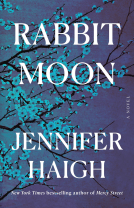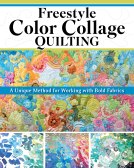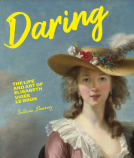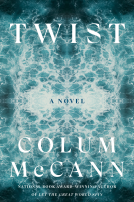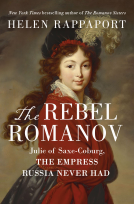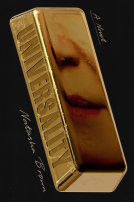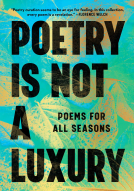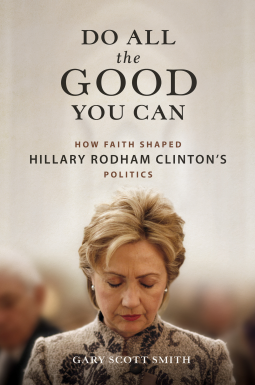
Do All the Good You Can
How Faith Shaped Hillary Rodham Clinton’s Politics
by Gary Scott Smith
This title was previously available on NetGalley and is now archived.
Send NetGalley books directly to your Kindle or Kindle app
1
To read on a Kindle or Kindle app, please add kindle@netgalley.com as an approved email address to receive files in your Amazon account. Click here for step-by-step instructions.
2
Also find your Kindle email address within your Amazon account, and enter it here.
Pub Date Oct 10 2023 | Archive Date Feb 22 2024
Talking about this book? Use #DoAlltheGoodYouCan #NetGalley. More hashtag tips!
Description
Methodism in the public and private lives of the politician
After more than forty contentious years in the public eye, Hillary Rodham Clinton is one of the best-known political figures in the nation. Yet the strong religious faith at the heart of her politics and personal life often remains confounding, if not mysterious, to longtime observers. Even many of her admirers would be surprised to hear Clinton state that her Methodist outlook has “been a huge part of who I am and how I have seen the world, and what I believe in, and what I have tried to do in my life.”
Gary Scott Smith’s biography of Clinton’s journey in faith begins with her Methodist upbringing in Park Ridge, Illinois, where she faithfully attended worship services, Sunday school, and youth group meetings. Like many mainline Protestants, Clinton’s spiritual commitment developed gradually throughout childhood, while her combination of missionary zeal and impressive personal talents has informed her career from the time of her pro bono work at Yale on behalf of children to the present.
Her Methodist faith has been very important to many of Clinton’s high-profile endeavors and in helping her cope with the prominent travails brought on by two presidential campaigns, never-ending conservative rancor, and her husband’s infidelity. Smith’s account examines Clinton’s faith in the context of work ranging from her 1990s pursuit of healthcare reform to a “Hillary doctrine” of foreign policy focused on her longtime goal of providing basic human rights for children and women--a project she saw as essential to United States security. The result is an enlightening reconsideration of an extraordinary political figure who has defied private doubts and public controversy to live by John Wesley’s dictum: “Do all the good you can, by all the means you can, in all the ways you can, in all the places you can, at all the times you can, to all the people you can, as long as ever you can.”
Advance Praise
“People are fascinated by, even obsessed with, Hillary Clinton’s faith, and they have not been shy about taking extreme positions, some rabidly skeptical and others blindly accepting of her sincerity. Gary Scott Smith provides a dramatic overview of the extraordinary range and depth of public perception about Clinton’s religiosity, and how those views were infracted by gender, the changing role of First Ladies, and the sharp fracturing of the American religious landscape.”--Margaret Bendroth, author of The Last Puritans: Mainline Protestants and the Power of the Past
“Through careful scholarship and insightful analysis, Gary Scott Smith demonstrates how Clinton’s progressive Christianity--rooted in a commitment to her childhood Methodism--was central to her public life, and key to her ability to endure numerous personal setbacks. Smith’s book not only is an important work for understanding Hillary Clinton’s political career but contributes to our understanding of religion’s undervalued role in shaping the political left in recent American history.”--Christopher H. Evans, Do Everything: The Biography of Frances E. Willard
Available Editions
| EDITION | Other Format |
| ISBN | 9780252045318 |
| PRICE | $34.95 (USD) |
| PAGES | 320 |
Links
Available on NetGalley
Featured Reviews
To even say the name Hillary Rodham Clinton on social media is to expect a passionate reaction either passionately for or against one of the best known politicians in our contemporary era and, arguably, one of the most successful female political leaders in the history of the United States.
With "Do All the Good You Can: How Faith Shaped Hillary Rodham Clinton's Politics," Gary Scott Smith examines the role of Clinton's faith in her life and work. Clinton's lifelong Methodism, frequently acknowledged yet seldom fully understood, helped to shape a missionary zeal that, combined with her impressive talents and skills, fueled many of her high-profile political endeavors and helped her cope with the relentless rancor of skeptics and supporters alike along with the undeniable challenges brought on by her husband's infidelity and messy legacy.
Smith views Clinton's faith through the lens of a variety of projects ranging from healthcare reform to a "Hillary doctrine" of foreign policy that targeted providing basic human rights to children and women.
Smith's work here, stunning in its detail, research, and insight, results in a unique and necessary view of an extraordinary political figure who defied political, professional, and personal challenges to lean heavily into the Methodist dictum to "do all the good you can."
"Do All the Good You Can" is, at times, an exhausting book precisely because of the relentlessness of Smith's research and detail. An upcoming release from University of Illinois Press, "Do All the Good You Can" reads as if someone's academic life depends upon it - perhaps, one might guess, because Smith himself recognizes that nearly anything involving Hillary Rodham Clinton comes under tremendous scrutiny.
Smith explores how Clinton's progressive Christianity - deeply rooted in a commitment to the Methodism in which she grew up - stayed central to her political journey. He further examines the challenges of this, from evangelicals who dismiss the more progressive branch of Christianity to Clinton herself who had difficulty, especially during her presidential campaign against Donald Trump, communicating with transparency and clarity how it impacted her as a human being and leader. In some ways, I felt like this same deficit exists within the book itself - Smith takes a deep dive into Clinton's faith yet never really delves into the denomination itself that has long struggled to come to terms with its conservative and progressive branches.
It becomes clear by book's end that virtually every aspect of Clinton's life has been impacted by her faith including her political successes, shortcomings, and decisions along the way. Smith taps into a greater understanding of religion's undervalued role in shaping political left, a massively underexamined truth, and sheds light in multiple ways on how the political left continues to struggle to define itself in theological terms to a left that can be both passionately for and passionately against organized religion.
A necessary read for those who consider themselves supporters of Hillary Rodham Clinton and likely to be appreciated by those who seek a greater understanding of the continued role of religion in shaping the American political scene, "Do All The Good You Can" is an incredibly well researched, insightful, and perceptive exploration of how faith shaped Hillary Rodham Clinton and impacted the changing role of American First Ladies and an increasingly fractured religious landscape.
Hillary Rodham Clinton is one of the most admired and most vilified American politicians. When she was First Lady, a woman I knew said she didn’t like her cheeks! As Secretary of State, people didn’t like her pant suits. As a candidate for the presidency, people didn’t like that she didn’t stand up to Trump while others thought she was too abrasive and they didn’t like her voice. We all saw the memes circulating across social media that spewed hate without a stated reason. Some of my social media and personal friends supported Hillary and admired her. Others were Never Trumpers who backed her as the lesser of two evils.
Although I married into the United Methodist Church (UMC) and was a pastor’s wife for most of my adulthood, I didn’t know much about Clinton’s faith and the impact of the UMC in her life.
The very title of this book is basic Methodism: Do all the good you can, by all the means you can, in all the ways you can, in all the places you can, at all the times you can, to all the people you can, as long as ever you can. The author shows that this teaching is central to Clinton’s faith and the motivation for her work and political aspirations.
Methodism’s founder John Wesley had been disturbed that the Church of England lacked a spiritual foundation and became involved with a group decried as “Methodists” for their methodical faith life which included weekly prayer, confession, and communion. He was decried for preaching outside of the church’s walls, going to the common working people. He taught the importance of works of charity and reaching out to the suffering and imprisoned as a central response to recognizing God’s gift of grace to all. Over its history, Methodism supported public education, prohibition, worker’s rights, and social justice. The church attacked social ills including alcohol, gambling, racism, and sexism. During most of the twentieth century, this social gospel aspect of the UMC prevailed.
When Clinton left home she was exposed to new ideas, reading Kierkegaard, Bonhoeffer, Paul Tillich, Reinhardt Niebuhr, and Karl Barth. (When my husband was a seminary student, I audited classes and read them all. I was particularly impacted by Niebuhr, the class taught by a man who had been involved with the Civil Rights movement.) Clinton drifted from her Republican upbringing to a McGovern Democrat. From the start, she was drawn to working for the social good.
Throughout the book, details of Clinton’s life and career are supported by deep research. The author shares both the criticism she faced and the support she was given, her successes and her failures, her strengths and her weaknesses, evaluations of what she did right and where she went wrong.
The overall picture is of a woman of strength, faith, motivation, and intellect, an imperfect Christian and flawed politician, a victim of sexism and libel and her own fatal flaws. Clinton’s support of controversial topics has overshadowed her life-long work to support the needs of women and children.
Some evangelical Trump supporters contended that flawed and sinful people can still do God’s work, and yes, the Bible is filled with such examples. Those same voices accused Clinton of being Satan.
The failure of the Democratic party and Clinton’s political campaign had, as we know, a huge impact. The book delves into the way each candidates reached, or failed to reach, voters of faith.
Reading this book I was again made aware of how religion has infiltrated politics and the law, and how American society, while leaving organized religion, still hold religious ideals that they believe should be a part of politics. The author quotes James Madison’s Federalist No. 10, warning against the human tendency of dividing into factions that would rather fight than cooperate for the common good.
This book gave me a lot to think about.
Thanks to the publisher for a free book.
 Colleen M, Reviewer
Colleen M, Reviewer
Do All the Good You Can: How Faith Shaped Hillary Rodham Clinton's Politics is written by Gary Scott Smith. This is a lengthy, intensive and often times repetitive deep dive into how faith molded the views and beliefs of Hilary Clinton.
Hillary Rodham Clinton is one of the most admired and most vilified American politicians. But most people would find it hard to believe that her faith is very important to her and helped to guide her. It is not surprising that her faith is a result of her belonging to the Methodist Church. Most people's faith is rooted in their experiences with religion beginning as a child.
“Do all the good you can, By all the means you can, In all the ways you can, In all the places you can, At all the times you can, To all the people you can, As long as ever you can.” John Wesley
Hilary Clinton would come to embrace the teachings and the quote above by John Wesley which would resonate with her by wanting to good for others. She would take up the mantle for women and children's issues throughout her young adulthood and into her political life.
The trouble Hilary encountered, was no one wanted to believe her. It was easier to attack and lie about her than it was to get to know her. And therein lies the problem, it is easier to believe the horrible things that politicians are able to get away with saying than it is to do your own research. If you say it loud enough and often enough it will be believed even if it is not true. More and more we have the left side and the right side. Not the truth side. Unfortunately, we have the news that is made in order to get ratings instead of reporting the facts. Facts are boring and scandal is entertaining.
I can honestly say that I was unaware how much I didn't know about Hilary and many of my impressions about her were based on the media spin. This book delves deeply into how important her faith is to her, something I did not know. We as a society are jaded, and we often think or believe that our politicians are pandering to get the vote. Oftentimes we are proven right as we see again and again how self-interest drives many politicians.
Hilary is a strong, intelligent woman. She is faithful to her church's teachings. She believes that she should to the right thing, but she also realizes that when she makes mistakes and fails, she can learn to better the next time if given the opportunity. She is also a woman who believes in her husband even when he fails her. Much is talked about why she stayed after Bill's public humiliation while in office. It was her faith that helped her to see that forgiveness frees the heart from pain and grudges are consuming.
After reading this I am more aware than ever that people rarely know the truth about the people we elect. Hilary wanted to help advance rights for women and children in order to give them a voice that she believed was lacking. It is easier to tear down someone than to admire them for their efforts to change for the better.
The author quotes James Madison’s Federalist No. 10, warning against the human tendency of dividing into factions that would rather fight than cooperate for the common good. I think that this is what we have been experiencing for quite a while.
This is a thought-provoking book that will leave the reader wondering and hopefully challenge them to question what we are being fed by those who think we are too stupid to see what is going on and do not have anyone's best interests at heart other than own.
Thank you, NetGalley, for providing me with this uncorrected proof for review.
Gary Scott Smith provides a rather different perspective on Hillary Rodham Clinton, or so it seems to me. My response may not be significant, after all, I am not an American political commentator, voter, or resident. However, I was strongly interested in the 2016 American election, and of all the many aspects of Hillary Rodham Clinton that became apparent throughout that period, advertisements, speeches, commentary and the debates, religion and Clinton’s commitment were not some. Scott Smith writes movingly of the role of religion in Hillary’s life and suggests that, if her campaign had addressed her commitment, it is possible that the 2016 run for President might have had a different result. Although I am not always impressed with his case for this, the discussion of religion in Clinton’s life makes valuable reading, showing as it does, the role of religion in American politics which is so different from that in Australian politics, and as Scott Smith demonstrates, from many other countries.
The book makes thorough use of quotes from Hillary Rodham Clinton’s speeches, the bible, and religious sources admired and referred to by Clinton. The chapter headings follow this pattern, with titles such as “Stay in Love with God”; “I Felt My Heart Strangely Warmed”: Clinton’s Spiritual Roots; “Let your Light Shine to All”: From Wellesley to the White House; “Be Rigorous in Judging Ourselves and Gracious in Judging Others”: New York Senator and 2008 Presidential Candidate; “I look Upon All the World as My Parish”: Secretary of State and Seeking the Oval office; “Be Not Weary of Well Doing”: The 2016 Presidential Campaign; and “God Grant That I May Never Live to Be Useless!”.
Scott Smith’s addition of the quotes to the basic information about the progress of Hillary Rodham Clinton’s life through childhood, Wellesley, First Lady, Senator, Presidential Candidate 2008 and Secretary of State, and during the 2016 Presidential Campaign and its aftermath highlight the flavour of this biography. It is aimed at being markedly different from others in giving Clinton’s religious commitment an enduring and empowering role. Scott Smith argues comprehensively for a woman known for a host of other virtues (and shortcomings) to be known for her sincerity and commitment to her religion, and its essential role in her life. In taking up the cudgels for the possibility that a greater public commitment to religious thought and teachings by Clinton during the 2016 Presidential Campaign may have achieved a different result he also moves into different ground.
The great strength of Scott Smith’s approach to Hillary Rodham Clinton and her motivation, beliefs, campaigns and life is his detailed and warm recognition of everything that makes her the woman who has weathered adversity with such panache. To my knowledge, the central nature of Rodham Clinton’s religious belief, summed up so well in the chapter titles as well as permeating every aspect of Scott Smith’s analysis, has not been given such a thorough analysis in previous biographies. His work provides a marvellous insight that gives her religious outlook the place it deserves. Where I think Scott Smith may be on less strong ground is his assertion that had Hillary Rodham Clinton’s religious belief played a larger part in her presidential campaign it may have made a difference to the result. That, I think, needs much more analysis of what went wrong, as well as acknowledgement that she won the popular vote by such an immense majority. That proviso has not spoilt the book for me, I thoroughly enjoyed knowing more about Hillary rodham Clinton, but the environment in which she sought the presidency. A really worthwhile read.
This book starts out with the horrible lies that were told about Hilary Clinton, and they were truly monstrous. The reader might be discouraged from reading further, but once past that, we find that Hilary Clinton's Methodist faith is what carried her through some of the worst events that could happen to a woman including her husband's infidelity. The author Gary Scott Smith then goes into the history of her family, then the history of Hillary Clinton's upbringing, and even the teachings of the United Methodist Church, and how Mrs. Clinton became immersed in the Methodist Christian faith to the point that it became the bedrock of all the decisions and actions that she took during her long career. The title of the book says it all: "Do All the Good You Can" and this became her mantra. Because she didn't flaunt her faith in words, many books and articles were written about her that barely mention it or don't mention it at all. This book is essential reading to get a clearer picture of the most important women of our time, one who was more prepared to be president of the United States than any who had gone before. Did you know that she got more votes than Trump and lost anyway? What a different world we'd be living in if she had become president!




